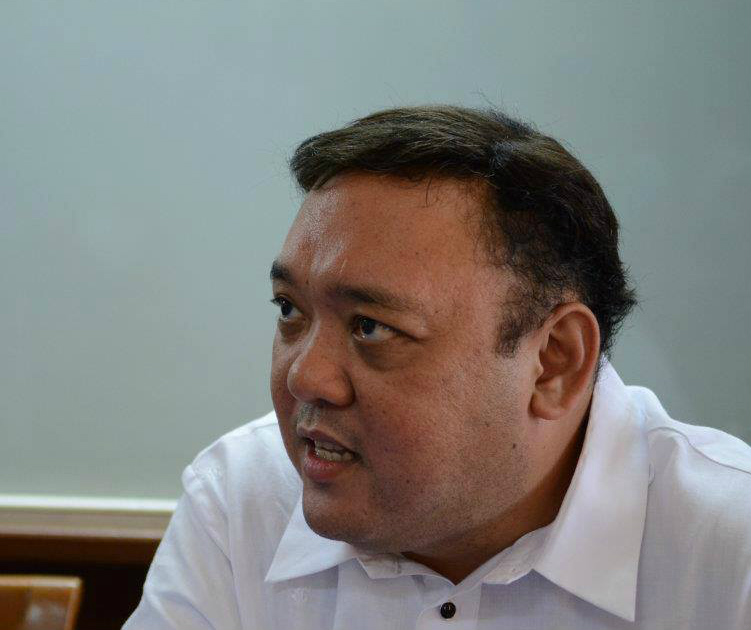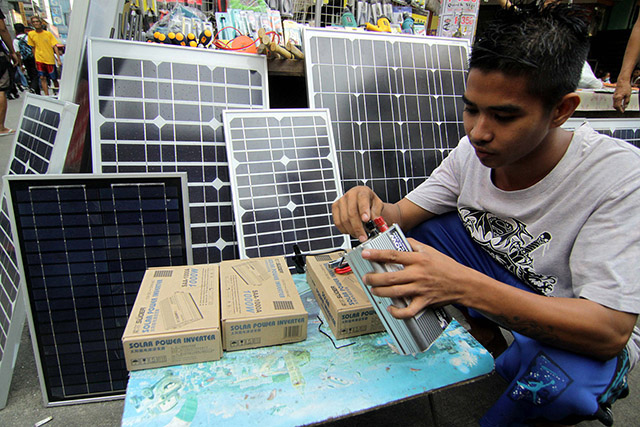ADVERTISEMENT
Filtered By: Topstories
News
Why access to electricity is a human right
By HARRY ROQUE
I was one of those who, over the weekend, called for Congress to declare a state of national emergency and grant the President the power to temporarily take over the running of both the power generation and distribution industries.

Prof. Harry L. Roque Jr.
This was in response to Meralco’s statement that the temporary restraining order issued recently by the Supreme Court against what could have been Meralco’s biggest increase in electricity cost will lead to power disruptions and brownouts.
I made this call amid testimony made by officials from the Energy Regulatory Commission (ERC) in the Senate that there is now evidence of “detectable collusion” among power generators. This, they said, was because power generators are also players in the spot market where Meralco purchases its electricity: “gaming in the spot market and shutting down without justification are clear indications of collusion.”
In response to it, the chairman of the committee, Senator Antonio Trillanes, concluded: “It’s clear there’s conflict of interest. It appears you shut down here and then you sell there; it’s higher there.”
In the first place, the business of power generation and distribution are imbued with the public interest. This is because these industries sell an indispensible commodity – electricity – to the general public. This is why these businesses are recipients of a franchise to operate. This is a privilege bestowed on the state only to those who are deserving—this is not a right. This is also why when we privatized these industries through the Epira law, Congress still granted the ERC the power to fix rates for electricity.
Simply put, these businesses are subject to close regulation because their business will affect the welfare of the general public who are the end users of their commodity. But my call for the temporary takeover was not only because these companies have breached their obligations to provide a convenience to the general public. On the contrary, I advocated their temporary takeover because in addition to being mere recipients of a state privilege – which can be revoked when the interest of the public requires this – what is involved here is a human right, which a State is duty bound to take progressive steps to realize.
Perhaps the confusion over access to electricity as a human right is because there is a dearth of human rights treaties that explicitly mention that it is a human right. In fact, there is only the Convention on the Elimination on Discrimination Against Women that provides for it as a right: “States should take steps to ensure that. . .women. . .shall enjoy adequate living conditions particularly in relation to. . .electricity.”
Despite this paucity of literal sources for the right to access to electricity, it is accepted in the field that this right is covered by Article 11 of the International Covenant on the Economic Social and Cultural Right (ICESCR), which imposes an obligation on State Parties to the Covenant to “recognize the right of everyone to an adequate standard of living, including adequate food, clothing and housing, and the continuous improvement of living conditions.”

A vendor in Quiapo demonstrates how a solar panel generates power for home appliances. Sales have risen as Meralco's power rate hike looms. (Photo: Danny Pata)
Essentially, this obligation requires every nation to provide human habitation with all the other accompanying facilities in it such as electricity. As opined by a leading NGO: “Inadequate power supply is one issue that generates feelings of helplessness, sometimes anger or outright disgust. Experience has clearly shown that the absence of electricity constitutes one single major factor impeding the full achievement of these rights.”
Thanks to an exposure trip sponsored by the Bertha Foundation to India, I have since discovered that a Mumbai High Court was the first to apply this right to access to electricity in domestic law. In ruling that informal settlers have the right to access to electricity, the High Court ruled: “access to electricity should be construed as a human right. Denial of it would amount to violation of human rights. . .Lack of electricity supply is one of the determinative factors, affecting education, health and a cause of economy disparity, and consequently, inequality in society leading to poverty. Electricity supply is an aid to get information and knowledge. Children without electricity supply cannot even imagine competing with others.”
A concurring opinion to this decision said: “Lack of electricity denies people equal opportunities in the matter of education and consequently suitable employment, health, sanitation and other socio-economic rights. Right to electricity of a person. . .is integral to the achievement of socio-economic rights. . .It is the fundamental duty of the authorities to show compassion to those who are living in huts and tenements for long. When social and economic justice is the mandate of the Constitution, it is a travesty of justice to deny electricity to the petitioners.”
Let’s hope that our very own Supreme Court does not only find grave abuse and discretion in this latest Meralco increase. Let’s hope it also goes further and recognizes access to electricity as a human right. — KDM, GMA News
Prof. Harry L. Roque, Jr. is an Associate Professor at the UP College of Law and the chairperson of the Center For International Law. This piece originally appeared in his website on January 15. We are re-posting it with permission.
More Videos
Most Popular




